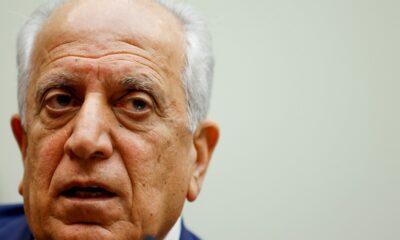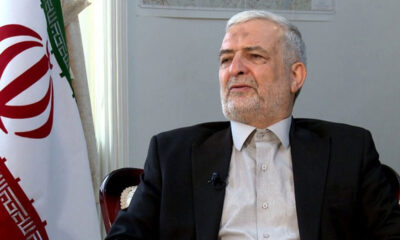Business
IEA plans regional energy trade hub with Russian oil in mind
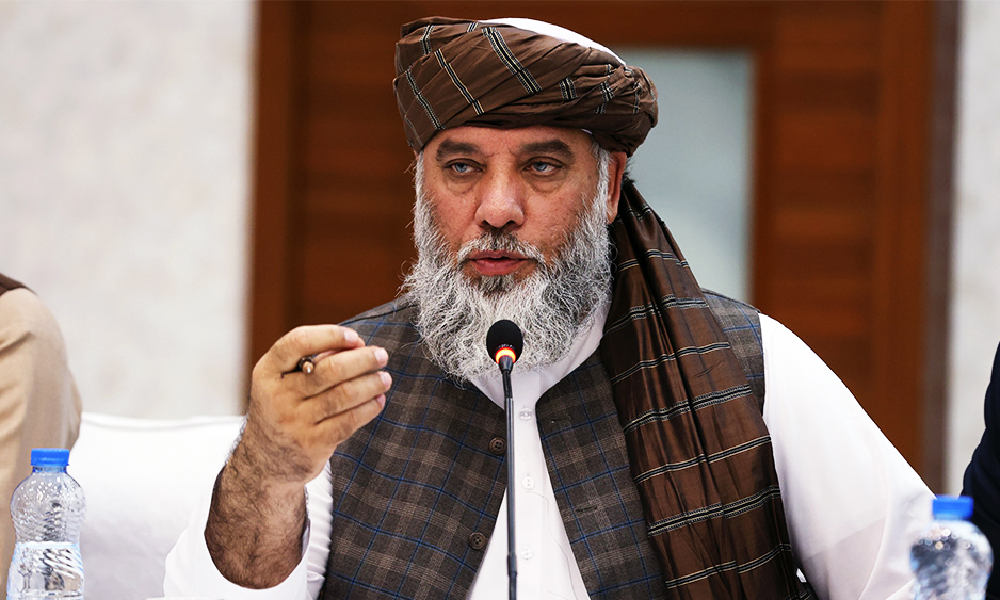
The Islamic Emirate of Afghanistan (IEA) has agreed with Kazakhstan and Turkmenistan to build a logistics hub in western Afghanistan aimed at making the war-torn nation a major logistics point for regional exports, including oil from Russia to South Asia, the country's commerce minister said.
Following a meeting between representatives of the three countries in the Afghan capital last week, IEA’s acting commerce minister Nooruddin Azizi told Reuters that technical teams would draw up a written agreement within two months on the formal plans for the hub, which all three countries would invest in after six months of talks.
As foreign aid to Afghanistan falls and the predominantly agricultural economy is marred by persistent drought, its officially unrecognised IEA government has faced questions over how to fund development and avoid economic stagnation, Reuters reported.
Azizi said the new hub was part of broader efforts to take advantage of Afghanistan's strategic location, once a thoroughfare for the ancient Silk Road trade route, lying between South and Central Asia and sharing borders with China and Iran.
"Based on our discussions, a logistics centre is going to be established in Herat province, which can connect the north to South Asia," Azizi said, adding that the Taliban (IEA) was eyeing the millions of tons of oil they expected Russia would be selling in coming years to South Asian countries, particularly Pakistan, to pass through the new hub.
"The three countries have done their best to prove Afghanistan's claim as a connectivity point," he said.
"Reaching Pakistan through Afghanistan will be the best option," Azizi added, saying they were focused on Russia's petroleum exports and that Kazakhstan was also planning to export goods through Herat into South Asian markets.
Kazakhstan's trade ministry said in a statement to Reuters that it wanted to develop roads and a railway through Afghanistan to connect with South Asia and the Gulf, with the hub serving as an important logistics point.
"The creation of the hub will allow for the development of multi-modal services by consolidating truck shipments in the dry port where they will be sorted and sent along railroads on the North-South corridor to sea ports in the Gulf, Pakistan, and Indian Ocean, towards India," the statement said.
Azizi said the logistics hub's initial capacity would be one million tons of oil but he did not give a date for when it would be operational.
Turkmenistan's government did not immediately respond to a request for comment and the Russian government did not respond to a request for comment during a national holiday.
Pakistan's foreign office and energy minister did not respond to a request for comment. Pakistan is a major trading partner with Afghanistan and has signed on to regional energy connectivity agreements, Reuters reported.
However, Islamabad has had strained relations with the IEA in recent years over accusations Afghanistan is harbouring anti-Pakistan militants, which Kabul denies.
Cash-strapped Pakistan last year became Russia's latest customer, snapping up discounted crude that has been banned from European markets due to Russia's war on Ukraine.
Afghanistan also buys oil, gas and wheat from Russia at discounted rates.
Azizi said that the IEA was also speaking with Chinese authorities on building a road through the remote, narrow Wakhan corridor that connects Afghanistan with China and that they hoped Afghanistan would eventually develop into a route for trade between China and Iran. He said Afghan commerce ministry officials had been recently been sent to China for training.
Business
Bahraini and Russian traders keen to invest in Afghanistan
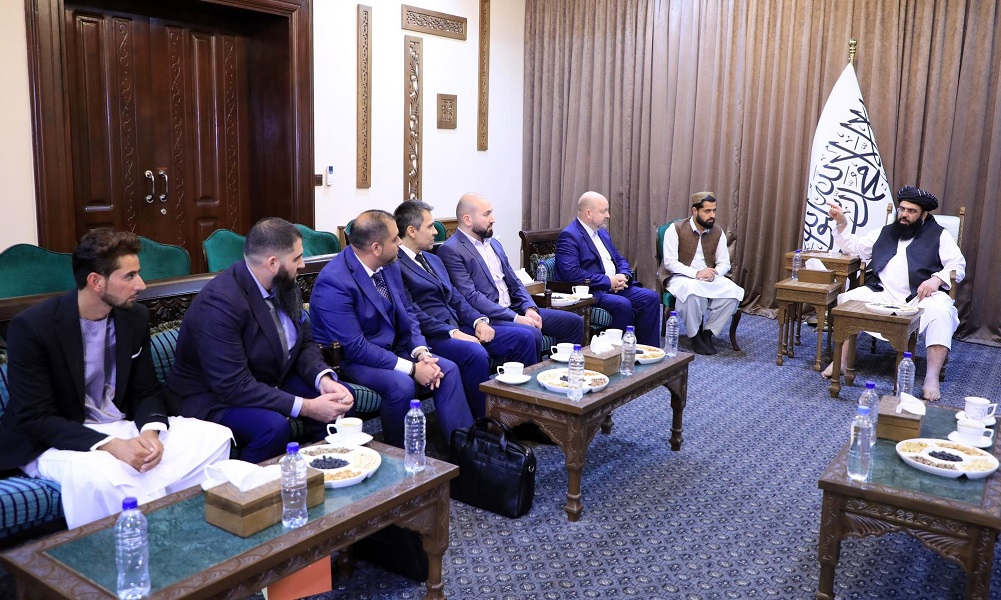
A number of traders and investors from Bahrain and Russia in a meeting with Mawlawi Abdul Kabir, political deputy prime minister, have expressed their interest in investing in various parts of Afghanistan, Arg said in a statement on Saturday.
The statement stated these traders are interested in investing in health sectors and other areas in addition to mining, aviation security and the training of its professionals.
Abdul Kabir also told the businessmen and investors of these two countries that after the Islamic Emirate’s takeover, more focus and a lot of efforts have been made on economic growth in the country.
Kabir assured them the IEA has provided the necessary facilities and conditions to all investors.
He added that now basic projects are being implemented in the sectors of oil and other mineral extraction, pharmaceuticals, construction of dams and roads.
Business
Afghanistan’s exports to China up 11.5 percent this year
The Chinese diplomat mentioned that China will offer Afghanistan zero-tariff treatment for 100 percent tariff lines starting December. This initiative is expected to greatly enhance the export of Afghan products to China and generate job opportunities for many Afghans, he said.

Afghanistan’s exports to China have increased by 11.5 percent this year, with forecasts indicating a 25 percent growth next year, Chinese Ambassador in Kabul Zhao Xing said on Thursday.
Zhao said in a meeting with Mawlawi Abdul Kabir, Deputy Prime Minister for Political Affairs of the Islamic Emirate of Afghanistan (IEA), that the groundwork for economic and commercial projects in Afghanistan has been laid. He stressed the importance of fostering cooperation between China and Afghanistan in various sectors.
The Chinese diplomat mentioned that China will offer Afghanistan zero-tariff treatment for 100 percent tariff lines starting December. This initiative is expected to greatly enhance the export of Afghan products to China and generate job opportunities for many Afghans, he said.
Zhao also outlined plans for a new economic corridor linking Afghanistan and China through Tajikistan. This initiative will be on the agenda at an upcoming trilateral meeting involving representatives of Tajikistan, China, and Afghanistan.
He highlighted the significance of activating the Wakhan corridor as a key component of this project.
The envoy, commenting on the developing situation in Afghanistan, expressed China's interest in investing across various sectors within the country and executing relevant projects. He noted China's advocacy for Afghan development at international forums and its calls for the global community to undertake projects within Afghanistan. He encouraged dialogue and negotiation as a means to address existing challenges.
Meanwhile, Deputy Prime Minister for Political Affairs Mawlawi Abdul Kabir appreciated China's offer of tariff-free trade. He remarked that this measure would benefit Afghan entrepreneurs and strengthen the national economy, calling other neighboring countries to follow suit.
He noted that the Wakhan corridor is a pivotal development in the bilateral relations between Afghanistan and China, emphasizing that its completion would greatly enhance economic and commercial exchanges between the two countries.
Business
Wide variety of Afghan products go on display at Kazakhstan expo
The expo runs from October 20 to 22, at the Atakent Exhibition Center in Almaty, and over 250 Afghan traders are taking part.
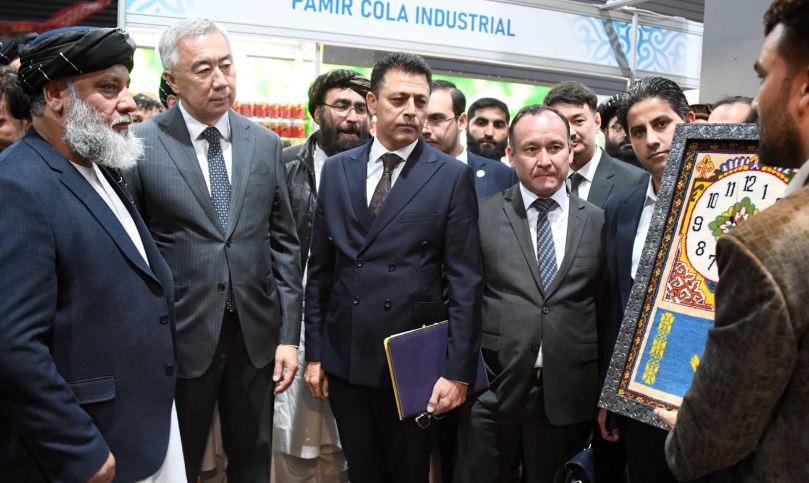
An expo of Afghan products opened officially in Almaty, in Kazakhstan on Sunday in the presence of Afghanistan’s acting Minister of Commerce and Industry, Nooruddin Azizi and Serik Zhumangarin, the deputy prime minister of the host country.
Addressing the opening ceremony of the expo, Azizi welcomed the initiative and said such events were effective in expanding trade and business relations between the two countries.
Zhumangarin said in turn that Astana is interested in maintaining commercial, economic, transportation, logistics and energy relations with Kabul.
The expo will be held over three days and Afghan products are being displayed in more than 70 booths.
On display are numerous products from Afghanistan including carpets, jewelry, construction materials, household and industrial chemicals, vegetables, fruit, and food products.
The expo runs from October 20 to 22, at the Atakent Exhibition Center in Almaty, and over 250 Afghan traders are taking part.
Kazakhstan has increased efforts recently to boost trade with Afghanistan and in June, President Kassym-Jomart Tokayev announced that his country had removed the Islamic Emirate from its list of militant organizations.
In late August, Kazakhstan’s Foreign Ministry then accredited a chargé d’affaires of Afghanistan in order to expand trade, financial, and humanitarian cooperation between the two countries.
-

 Sport4 days ago
Sport4 days agoAfghanistan A make ACC Emerging Asia Cup semis despite Hong Kong’s win
-
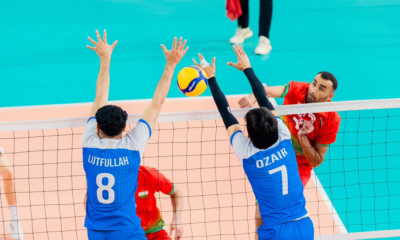
 Sport4 days ago
Sport4 days agoAfghanistan volleyball team tumbles 3-2 to Tajikistan
-

 Sport4 days ago
Sport4 days agoACB names squad for Afghanistan’s ODI series against Bangladesh
-
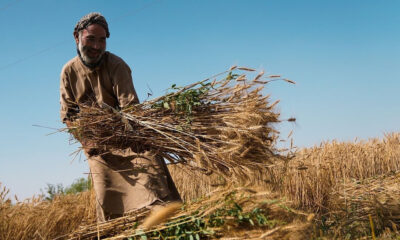
 Latest News5 days ago
Latest News5 days agoAfghanistan’s wheat production for this year up by 10%
-

 Latest News5 days ago
Latest News5 days agoGhazni dam project underway after initial survey conducted
-
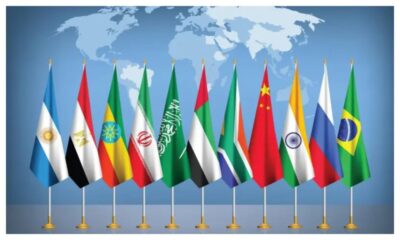
 Latest News5 days ago
Latest News5 days agoBRICS summit gets underway in Kazan, Russia
-

 Health4 days ago
Health4 days agoAIJU seals deal with private hospital for Afghan media workers
-

 Latest News3 days ago
Latest News3 days agoWife of late boxing legend Mohammad Ali to visit Kabul






